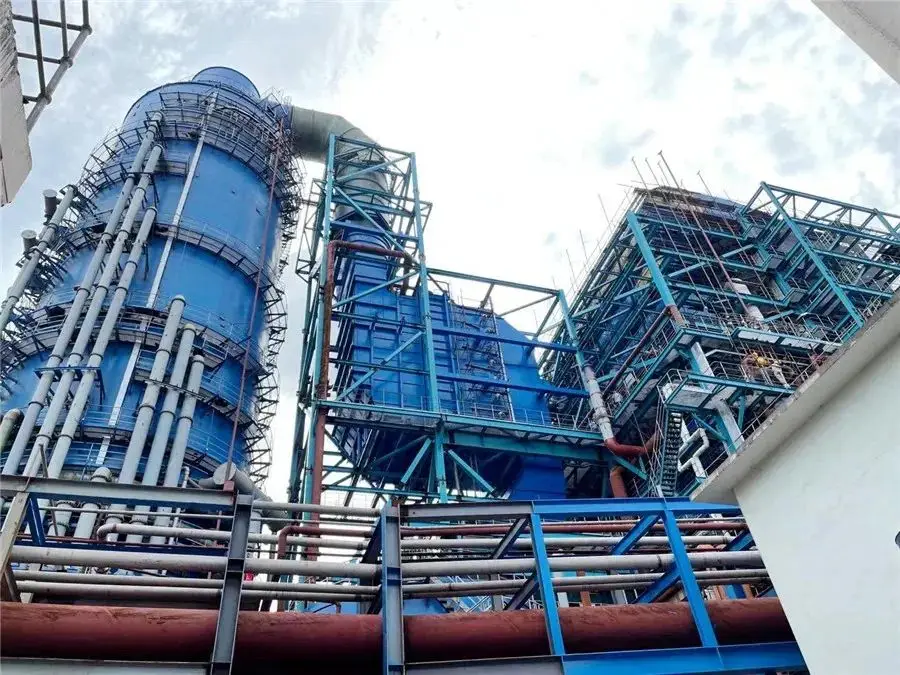
Oca . 02, 2025 07:43 Back to list
thermal oil boiler
Understanding Thermal Oil Boilers A Comprehensive Guide
Thermal oil boilers are specialized heating equipment that utilize thermal oil as the heat transfer fluid. Unlike traditional water-based boilers, these systems operate at higher temperatures without the risk of boiling water, making them a preferred choice in various industrial applications. This article will explore the construction, functioning, advantages, and applications of thermal oil boilers, offering a complete understanding of their significance in modern industrial processes.
Construction and Functioning
A typical thermal oil boiler comprises a furnace, heat exchangers, pumps, and a circulation system. The design aims to maximize efficiency while ensuring safe operation. The furnace generates heat, usually through combustion of fuels like natural gas, oil, or biomass. This heat is transferred to the thermal oil circulating through the system.
The thermal oil is circulated through a closed-loop system where it absorbs heat in the furnace, carries it to the heat exchanger, and then releases the heat to the process. The thermal oil has a high boiling point, allowing it to operate at temperatures exceeding 300°C (572°F) without transitioning to gas. This capability ensures consistent heating and precise temperature control, essential for many industrial applications.
Advantages of Thermal Oil Boilers
1. High Efficiency Thermal oil boilers achieve high thermal efficiency due to their ability to transfer heat without significant losses. The closed-loop system minimizes heat loss, making thermal oil boilers one of the most efficient heating solutions available.
2. High Temperature Operation Thermal oil systems can operate at higher temperatures compared to traditional boilers. This characteristic makes them ideal for processes that require high-temperature heat, such as chemical processing and food production.
thermal oil boiler

3. Safety With no risk of steam explosions, thermal oil systems provide a safer alternative to water-based boilers. The use of thermal oil eliminates issues related to steam pressure and associated hazards.
4. Versatility These boilers can be designed for various fuel types, including fossil fuels, biomass, or even electricity. This versatility allows businesses to choose sustainable options or the most cost-effective solution available.
5. Low Maintenance Requirements Thermal oil boilers require less maintenance than traditional systems due to their closed-loop design and fewer mechanical components. This feature helps reduce operational costs and downtime.
Applications of Thermal Oil Boilers
Thermal oil boilers find applications across numerous industries due to their efficiency and reliability. Some prevalent sectors include
- Chemical Industry They are used for heating reactors, distillation columns, and drying processes. - Food Industry Thermal oil is employed in cooking, frying, and pasteurization. - Textile Industry They provide necessary heat for dyeing and finishing processes. - Manufacturing Thermal oil boilers are used for process heat in industries like plastic, rubber, and pharmaceuticals.
Conclusion
In summary, thermal oil boilers represent a vital component in various industrial settings, providing efficient and safe heating solutions. Their ability to operate at high temperatures and pressure without the risk associated with steam makes them the go-to choice for many industries. By understanding the advantages and applications of thermal oil boilers, businesses can make informed decisions that enhance their operational efficiency and safety measures. As industries continue to seek sustainable and cost-effective energy solutions, the role of thermal oil boilers is set to grow even more significant, ensuring their presence in the future of industrial heating technology.
-
Best Steam Boiler Design PDF Free Design Calculation & Diagram Downloads
NewsJun.10,2025
-
Hot Boiler Water Heater Efficient Heating Solutions for Home & Commercial Use
NewsJun.10,2025
-
Steam Boiler Safety Devices High-Quality Protection Valves
NewsJun.10,2025
-
Ultimate Steam Boiler Checklist for Safety & Efficiency
NewsJun.10,2025
-
Optimal Hot Water Boiler Temperature Setting Guide
NewsJun.10,2025
-
Effective Hot Water Boiler Chemical Treatment Protect & Maintain
NewsJun.09,2025
Related PRODUCTS






















